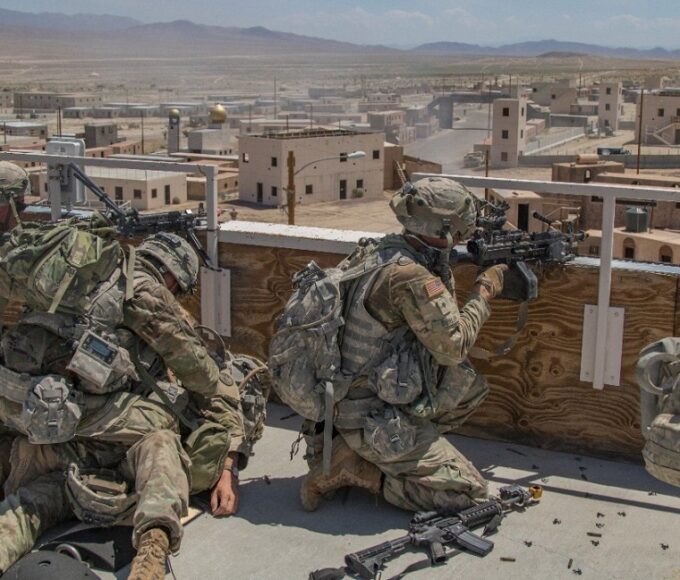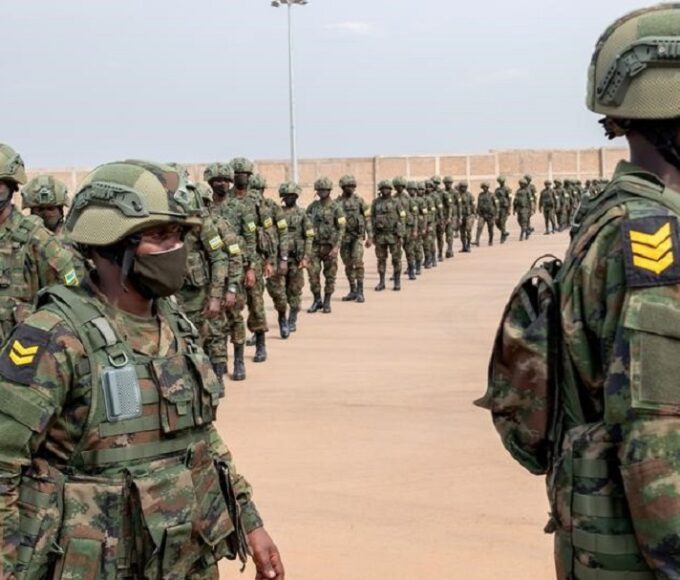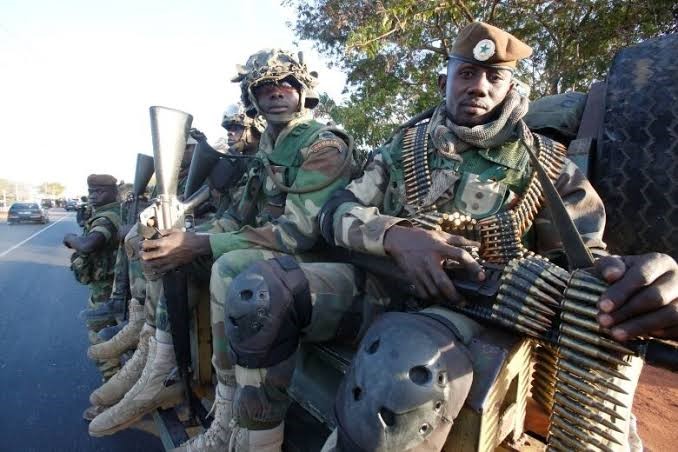Private Military Contractors in Africa – Mercenaries, Partners, or Spoilers?

In Africa’s security environment, one of the most polarising forces is the growing presence of Private Military Contractors (PMCs). They are called many things—mercenaries by critics, partners by some governments, and spoilers by human rights groups. Their roles oscillate between the shadows and the spotlight, raising fundamental questions about sovereignty, accountability, and the future of African security architecture.
Private Military Contractors are not a new phenomenon in Africa. From the notorious Executive Outcomes in the 1990s to the more recent presence of Wagner Group in Mali, Central African Republic, and Sudan, PMCs have been drawn to Africa’s conflicts for decades. What has changed is their scale, sophistication, and the diversity of actors involved. Today, they range from Russian and Western-linked firms to regional security outfits offering tactical support, logistics, intelligence, and even front-line combat roles.
While their services are often hired under the banner of “capacity building” or “security stabilisation,” the line between legitimate partnership and covert interference is perilously thin.
The Case for PMCs as Partners
For African governments facing immediate, high-intensity threats—from jihadist insurgencies in the Sahel to piracy in the Gulf of Guinea—PMCs offer rapid, flexible solutions. Unlike national armies bogged down by bureaucracy or hampered by years of underfunding, PMCs can deploy skilled personnel, modern equipment, and advanced surveillance systems within weeks.
In Mozambique’s Cabo Delgado province, for instance, Dyck Advisory Group provided aerial support to counter insurgents when state forces struggled to adapt to guerrilla tactics. For some, these interventions are the difference between losing strategic territory and regaining control.
Moreover, PMCs can fill capability gaps—training local forces, maintaining specialised equipment, and facilitating intelligence sharing. When tightly regulated and integrated into broader security strategies, they can operate as force multipliers rather than destabilising actors.
The Mercenary Problem
However, history has shown that PMCs are not always benign partners. Unregulated or politically weaponised PMCs can quickly become mercenary forces pursuing their own profit motives or serving the geopolitical interests of their sponsors.
In some cases, their presence has inflamed tensions rather than resolved them. Allegations of extrajudicial killings, resource exploitation, and the undermining of democratic institutions have tarnished their legitimacy. For example, in the Central African Republic, the Wagner Group has faced accusations of human rights abuses while securing mining concessions, blending military engagement with economic extraction.
This dual role—combatant and commercial actor—makes them particularly problematic in fragile states where governance structures are weak and oversight mechanisms virtually nonexistent.
Spoilers in Peace Processes
Beyond battlefield operations, PMCs can derail peace-building efforts. Their commercial survival often depends on the continuation of conflict, not its resolution. In some cases, they may align with one faction in a civil war, deepening divisions and undermining international mediation.
Additionally, their contractual secrecy makes it difficult for regional organisations like the African Union or ECOWAS to monitor their activities, complicating joint peace and security frameworks. When PMCs act as spoilers—deliberately or unintentionally—they can erode trust between negotiating parties and prolong instability.
Regulation: The Missing Piece
The African Union’s 1977 OAU Convention on the Elimination of Mercenarism in Africa sought to outlaw mercenary activity, but its scope has been overtaken by the evolution of PMCs into corporate, registered entities. Today, African states face the urgent task of crafting updated regulations that can distinguish between legitimate contractors and destabilising mercenaries.
These regulations must include:
-
Transparent Contracts: Agreements should be subject to parliamentary or regional oversight.
-
Accountability Mechanisms: Clear lines of responsibility for civilian harm or misconduct.
-
Integration with National Forces: PMCs should operate under the command of the host nation’s security apparatus.
-
International Coordination: Regional blocs should harmonise rules to prevent PMCs from exploiting legal loopholes.
Balancing Security and Sovereignty
The question of whether PMCs are mercenaries, partners, or spoilers is not a binary one—it depends on the context, the actor, and the oversight in place. In some scenarios, they can provide a lifeline for governments under siege; in others, they can be instruments of exploitation and chaos.
For Africa, the challenge lies in building the capacity of national forces while developing the legal and institutional frameworks to manage any external security partnerships responsibly. Without this balance, the continent risks trading one form of insecurity for another.
Private Military Contractors will continue to shape Africa’s security terrain in the years ahead. Whether they emerge as stabilising partners, self-serving mercenaries, or destructive spoilers will be determined not just by who hires them, but by the safeguards—or lack thereof—put in place. In the high-stakes arena of African security, unchecked PMCs are a gamble the continent can ill afford.
- African security sovereignty
- African Union security regulations
- Cabo Delgado conflict private forces
- Dyck Advisory Group Mozambique
- ECOWAS and private military oversight
- Mercenaries in African conflicts
- Private Military Contractors in Africa
- Private security companies in Africa
- Sahel insurgency PMC involvement
- Wagner Group Africa operations
King Richard Igimoh, Group Editor ALO
King Richard Igimoh, Group Editor African Leadership Organisation is an award-winning journalist, editor, and publisher with over two decades of expertise in political, defence, and international affairs reporting. As Group Editor of the African Leadership Organisation—publishers of African Leadership Magazine, African Defence & Security Magazine, and Africa Projects Magazine—he delivers incisive coverage that amplifies Africa’s voice in global security, policy, and leadership discourse. He provides frontline editorial coverage of high-profile international events, including the ALM Persons of the Year, the African Summit, and the African Business and Leadership Awards (ABLA) in London, as well as the International Forum for African and Caribbean Leadership (IFAL) in New York City during the United Nations General Assembly.
Recent Posts
Categories
- Air & Aerospace17
- Border Security15
- Civil Security6
- Civil Wars4
- Crisis5
- Cyber Security8
- Defense24
- Diplomacy19
- Entrepreneurship1
- Events5
- Global Security Watch6
- Industry8
- Land & Army9
- Leadership & Training5
- Military Aviation7
- Military History27
- Military Speeches1
- More1
- Naval & Maritime9
- Policies1
- Resources2
- Security12
- Special Forces2
- Systems And Technology9
- Tech6
- Uncategorized6
- UNSC1
- Veterans7
- Women in Defence9
Related Articles
URBAN WARFARE PREPAREDNESS IN AFRICAN CITIES
Africa’s cities are rapidly becoming central to the continent’s security challenges. With...
ByKing Richard Igimoh, Group Editor ALOJanuary 12, 2026LAND & ARMY – AFRICA’S ELITE ARMY UNITS: WHO SETS THE STANDARD?
By late 2025, Africa’s elite army units stand at the sharp end...
ByKing Richard Igimoh, Group Editor ALODecember 22, 2025THE EVOLUTION OF AFRICAN INFANTRY WEAPONS from 1960
In the wake of widespread decolonization across Africa during the 1960s, newly...
ByKing Richard Igimoh, Group Editor ALOSeptember 5, 2025Urban Warfare Challenges for African Armies in a New Security Era
Across Africa, conflict is moving into the cities. From Mogadishu to Maiduguri,...
Byadmag_adminJune 27, 2025













